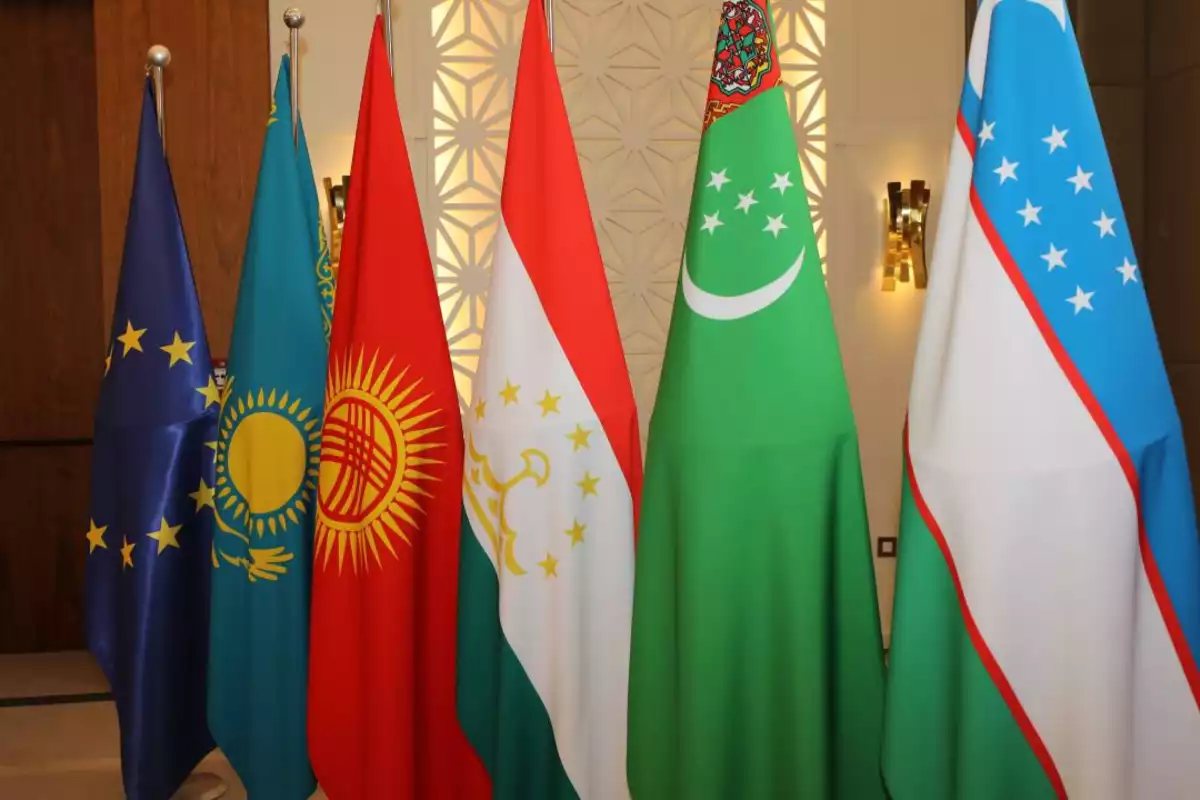
Photo credit: The Times of Central Asia
Amnesty International stated today that protecting human rights and ensuring the safety of civil society in Central Asian countries should be a central focus of the first-ever EU-Central Asia Summit, which is set to take place in Samarkand, Uzbekistan, on April 3-4.
“Central Asia stands at a pivotal moment as the European Union seeks to deepen its political and economic engagement with the region. Long-term progress depends not only on diplomacy, investment and trade - it also requires respect for human rights and space for civil society to develop and operate freely and without fear,” Marie Struthers, Amnesty International’s Eastern Europe and Central Asia Director, said, The Caspian Post reports citing amnesty.org.Long-term progress depends not only on diplomacy, investment and trade - it also requires respect for human rights and space for civil society to develop and operate freely and without fear
Marie Struthers, Amnesty International’s Eastern Europe and Central Asia Director
“The overall situation in the region remains concerning. Authorities maintain tight control over the media and civil society, suppress dissent, peaceful assembly, and freedom of association, and consistently fail to carry out human rights due diligence - that is, they do not take adequate steps to identify, prevent, and respond to potential human rights violations linked to their actions, laws or policies.”
Earlier this month, Kazakhstan signed a memorandum of understanding with the European Court of Human Rights (ECtHR) in which it agreed to use the ECtHR’s rulings as guidance in Kazakhstan’s domestic legal system. Meanwhile, Kyrgyzstan is seeking to strengthen the role of the Ombudsperson’s office, critical for ensuring that state bodies do not use their powers to curtail human rights, and Uzbekistan has achieved visible progress in addressing the issue of forced labour in the cotton industry.
However, even in countries demonstrating positive steps, recent trends are disturbing. In Kazakhstan and Kyrgyzstan, authorities routinely suppress the right to freedom of peaceful assembly and crack down on independent media.
Several Central Asian governments have adopted legislation and policies under the guise of protecting “traditional values” that restrict human rights and target marginalized groups. In Kyrgyzstan, a law modelled on Russia’s “foreign agent” legislation has since 2024 imposed onerous requirements on foreign-funded NGOs, leading to closures and self-censorship. Authorities across the region have also used similar rhetoric to justify violations of the rights of LGBTI people, who face discrimination, lack of protection from violence and restrictions on their rights to freedom of expression and peaceful assembly.
Across Central Asia, Eastern Europe and in the European Union (EU), government responses to concerns about national security or public morality have led to increased repression
Marie Struthers, Amnesty International’s Eastern Europe and Central Asia Director
“Across Central Asia, Eastern Europe and in the European Union (EU), government responses to concerns about national security or public morality have led to increased repression. Wherever “foreign agent” legislation has been enacted, it has led to the stigmatization of NGOs, the intimidation of activists and the slow suffocation of a vibrant civil society,” Marie Struthers said.
“If Central Asian governments and the EU, its institutions and national governments are truly committed to human rights, the path forward lies not in stifling civil society but in empowering it - by committing to human rights due diligence, fostering open dialogue, building trust between the state and the public and ensuring a safe environment for civil society to thrive. The European Union and Central Asian governments must ensure that human rights remain a core pillar of their enhanced cooperation.”
Share on social media